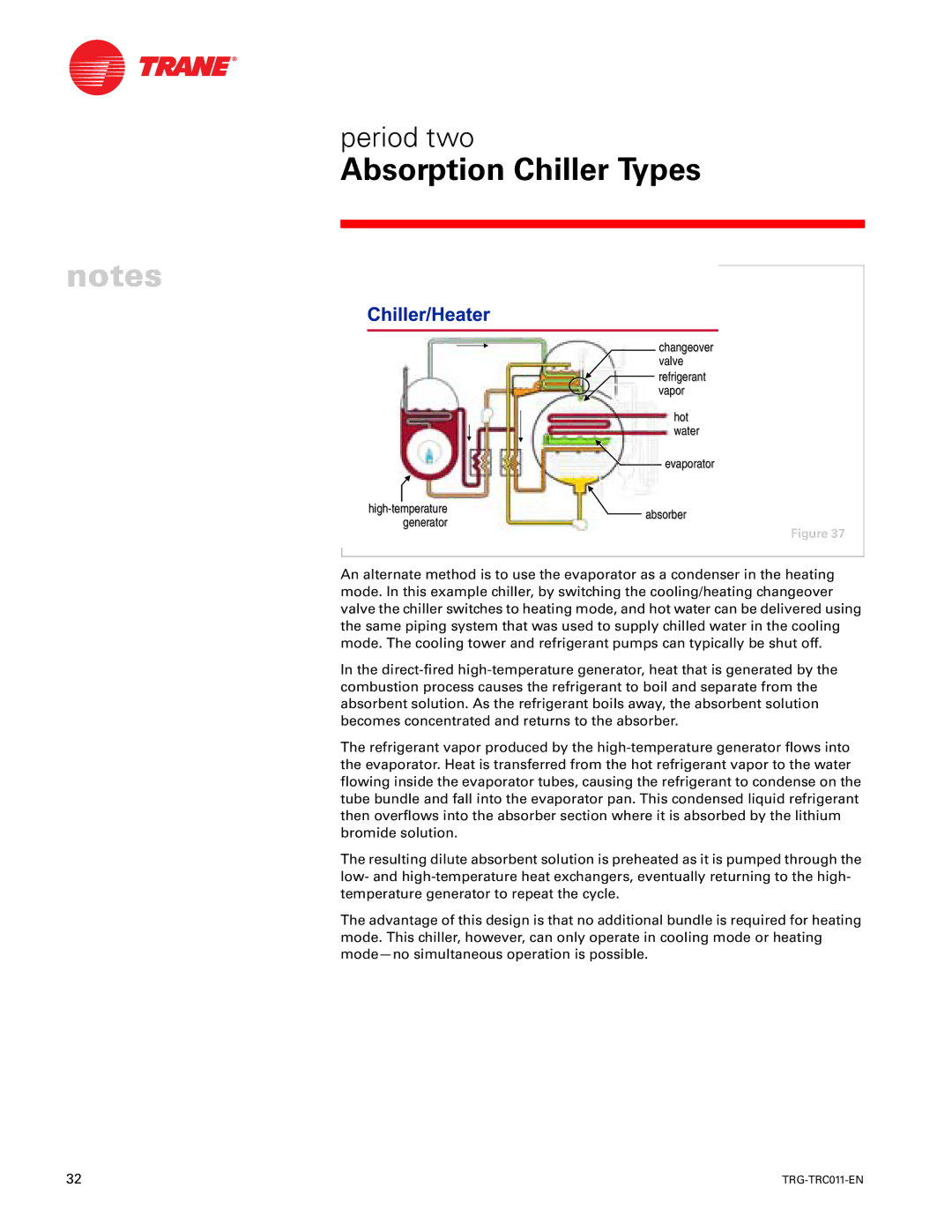
period two
Absorption Chiller Types
notes
| changeover | |
| valve | |
| refrigerant | |
| vapor | |
| hot | |
| water | |
| evaporator | |
absorber | ||
generator | ||
Figure 37 | ||
|
An alternate method is to use the evaporator as a condenser in the heating mode. In this example chiller, by switching the cooling/heating changeover valve the chiller switches to heating mode, and hot water can be delivered using the same piping system that was used to supply chilled water in the cooling mode. The cooling tower and refrigerant pumps can typically be shut off.
In the
The refrigerant vapor produced by the
The resulting dilute absorbent solution is preheated as it is pumped through the low- and
The advantage of this design is that no additional bundle is required for heating mode. This chiller, however, can only operate in cooling mode or heating
32 |
|
